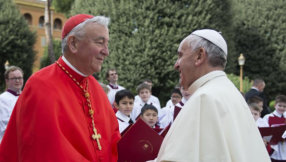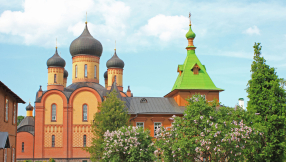Britain must recover its Judeo-Christian discourse, says Nazir-Ali
In his first speech on terrorism, the Prime Minister had admitted to the failure of multiculturalism and said that young Muslims needed a far stronger British identity to stop them turning to extremism. He also criticised the “hands-off tolerance” which had hitherto left extremist ideologies and practices unchallenged.
Mr Nazir-Ali, originally from Pakistan, said multiculturalism had created “segregated communities” that were “fertile” for extremists.
He said: “The reason multiculturalism came to be invented was the loss of public discourse rooted in the Judeo-Christian tradition. It is this discourse, and the making of moral and political decisions in its light, that needs to be recovered.”
The bishop welcomed steps outlined by Mr Cameron to root out terrorism on home soil, such as banning preachers of hate from Britain and refusing to fund organisations that promote extremist ideology.
“It seems that, at last, someone is listening to what many of us have been saying for years,” he said.
He criticised the failure to welcome and accommodate Britain’s diversity on the basis of Christian hospitality.
“This would have affirmed the Christian basis of British institutions, laws, and values. Others would then have been welcome to contribute, in this context, to nation-building. What we have had, rather, is the amnesia from which we now need to recover,” he said.
“The reason multiculturalism came to be invented was the loss of public discourse rooted in the Judeo-Christian tradition. It is this discourse, and the making of moral and political decisions in its light, that needs to be recovered.”
Bishop Nazir-Ali identified specific steps that the Government should take to foster integration, including ensuring a religious and ethnic balance in school populations and requiring members of minority communities to learn and speak English.
He also called for a thorough system of vetting religious leaders wishing to visit and work in Britain that would take into account their knowledge of the English language and British culture, and their academic credentials.
He concluded: “The prime minister has begun a national and even Europe-wide debate on integration and its relation to security. The government needs now to show in its policies that it is aware of the issues he has raised.”













